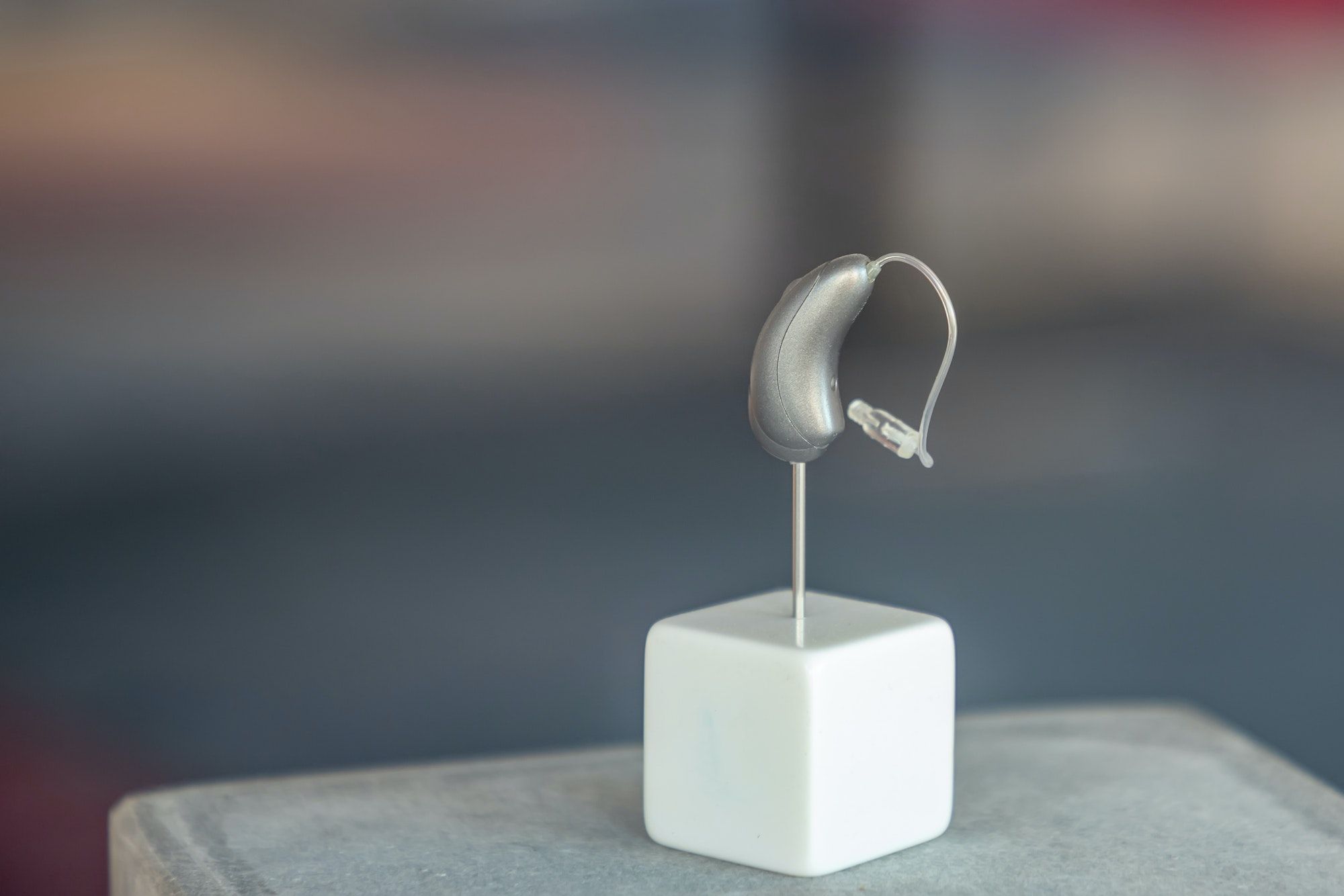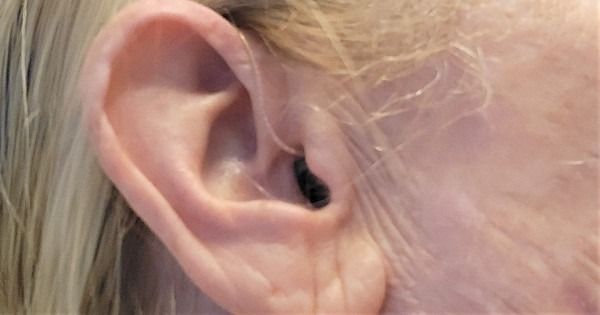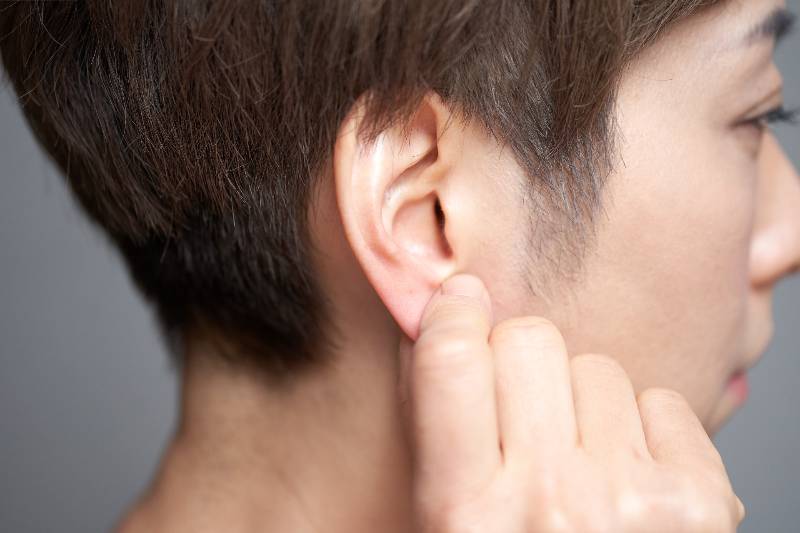Introduction
Sudden hearing loss is a serious condition that can happen to anyone at any time. It’s important to understand what sudden hearing loss is, what causes it, and what can be done about it. In this article, we will go over the most common symptoms, causes, and treatments for sudden hearing loss.
Sudden hearing loss typically occurs over a short period of time, such as a few hours or days. The most common symptom is a sudden loss of hearing in one or both ears. Other symptoms can include ringing in the ears, muffled sounds, and difficulty understanding speech. If you experience any of these symptoms, it is important to see a doctor as soon as possible.
There are many causes of sudden hearing loss, including infections, injury, and exposure to loud noises. Some medical conditions, such as Meniere’s disease, can also cause sudden hearing loss. In many cases, the cause of sudden hearing loss is unknown.
Fortunately, there are treatments available for sudden hearing loss. The most common treatment is steroid therapy, which involves taking a type of medication that helps reduce inflammation. In some cases, hearing aids or cochlear implants can be used to improve hearing. In severe cases, surgery may be necessary. If you experience sudden hearing loss, it is important to see a doctor as soon as possible to discuss your treatment options.
QUIZ - CAUSES OF HEARING LOSS IN CHILDREN
Symptoms of Sudden Hearing Loss
Sudden hearing loss is a condition that can occur suddenly and without warning. If you experience sudden hearing loss, it is important to understand the symptoms and seek medical attention as soon as possible. In this article, we will go over the most common symptoms of sudden hearing loss.
The most common symptom of sudden hearing loss is a sudden loss of hearing in one or both ears. This can happen over a period of a few hours or days, and can range from mild to severe. Other symptoms can include ringing in the ears, muffled sounds, and difficulty understanding speech. If you experience any of these symptoms, it is important to see a doctor as soon as possible.
Another symptom of sudden hearing loss is tinnitus, which is a ringing, buzzing, or whistling sound in the ears. Tinnitus can be temporary or long-lasting, and can be a sign of an underlying medical condition. If you experience tinnitus along with sudden hearing loss, it is important to see a doctor to determine the cause.
In some cases, sudden hearing loss can also cause dizziness or vertigo. This can be a result of the inner ear being affected, which controls balance and coordination. If you experience dizziness or vertigo along with sudden hearing loss, it is important to see a doctor to determine the cause and receive proper treatment.
It is important to seek medical attention if you experience any of these symptoms of sudden hearing loss. Early treatment can help prevent further hearing loss and improve your chances of recovering your hearing. Your doctor can determine the cause of your sudden hearing loss and recommend the best course of treatment for you.
Causes of Sudden Hearing Loss
Sudden hearing loss can be a mysterious and concerning condition. It’s important to understand what causes sudden hearing loss, as this can help determine the best course of treatment. In this article, we will go over the most common causes of sudden hearing loss.
One of the most common causes of sudden hearing loss is exposure to loud noises. This can include exposure to loud music, fireworks, firearms, and other loud noises. Over time, exposure to loud noises can damage the hair cells in the inner ear, leading to hearing loss.
Another cause of sudden hearing loss is infections. Infections of the inner ear, such as otitis media and labyrinthitis, can cause sudden hearing loss. In addition, other infections, such as meningitis and mumps, can also cause hearing loss.
In some cases, sudden hearing loss can be a result of injury. This can include head injury, ear injury, and neck injury. In addition, some medical conditions, such as Meniere’s disease, can also cause sudden hearing loss.
It is also possible for sudden hearing loss to be caused by certain medications. Some medications, such as certain antibiotics and chemotherapy drugs, can cause hearing loss as a side effect. If you are taking any medications and experience sudden hearing loss, it is important to talk to your doctor to determine if the medication could be causing your hearing loss.
It is important to seek medical attention if you experience sudden hearing loss, as early treatment can improve your chances of recovering your hearing. Your doctor can determine the cause of your sudden hearing loss and recommend the best course of treatment for you.
Treatments for Sudden Hearing Loss
If you experience sudden hearing loss, it is important to seek medical attention as soon as possible. There are treatments available for sudden hearing loss, and early treatment can improve your chances of recovering your hearing. In this article, we will go over the most common treatments for sudden hearing loss.
One of the most common treatments for sudden hearing loss is steroid therapy. This involves taking a type of medication that helps reduce inflammation. Steroid therapy can help improve hearing in some cases, but is most effective when started as soon as possible after the onset of hearing loss.
Another treatment option for sudden hearing loss is hearing aids or cochlear implants. These devices can help improve hearing by amplifying sound. Hearing aids and cochlear implants can be especially helpful for people with severe hearing loss.
In some cases, surgery may be necessary to treat sudden hearing loss. This can include surgery to remove a growth in the ear, such as a tumor, or surgery to repair a ruptured eardrum. Your doctor can determine if surgery is necessary for your specific case of sudden hearing loss.
It is important to seek medical attention if you experience sudden hearing loss, as early treatment can improve your chances of recovering your hearing. Your doctor can determine the cause of your sudden hearing loss and recommend the best course of treatment for you. In addition, your doctor can work with you to develop a comprehensive treatment plan that takes into account your specific needs and goals.
How to avoid sudden hearing loss
Sudden hearing loss is a condition where you suddenly lose your hearing ability, and it can be caused by working in a noisy environment. If you work in a noisy environment, it’s essential to take some precautions to avoid sudden hearing loss. Here are some tips that you can follow to protect your hearing:
First, wear protective earplugs or headphones. These devices will reduce the amount of noise that enters your ears and prevent sudden hearing loss. You can choose from a variety of earplugs and headphones, including disposable foam earplugs and noise-cancelling headphones. Make sure to choose a pair that fits comfortably and securely in your ears.
Second, take breaks from the noise. If you work in a loud environment, it’s important to take breaks from the noise every hour or so. This will give your ears a chance to rest and recover. You can step outside for a few minutes, or go to a quiet room to relax. During your break, you can also stretch your body, drink water, and do some deep breathing exercises to reduce stress.
Third, limit your exposure to loud noises. If you work in a noisy environment, try to limit your exposure to loud noises. This means avoiding loud music, movies, and other activities that can damage your hearing. If you have to attend concerts or events with loud music, make sure to wear protective earplugs or headphones.
Finally, talk to your employer about the noise levels in your workplace. If you feel that the noise levels are too high, you can discuss the issue with your employer and suggest ways to reduce the noise. This can include installing soundproof barriers, providing protective earplugs or headphones to employees, or implementing a noise-reduction program. By working together, you and your employer can help prevent sudden hearing loss and protect your hearing.
How to avoid Sudden Hearing Loss in a noisy environment
Sudden hearing loss is a condition where you suddenly lose your hearing ability, and it can be caused by working in a noisy environment. If you work in a noisy environment, it’s essential to take some precautions to avoid sudden hearing loss. Here are some tips that you can follow to protect your hearing:
First, wear protective earplugs or headphones. These devices will reduce the amount of noise that enters your ears and prevent sudden hearing loss. You can choose from a variety of earplugs and headphones, including disposable foam earplugs and noise-cancelling headphones. Make sure to choose a pair that fits comfortably and securely in your ears.
Second, take breaks from the noise. If you work in a loud environment, it’s important to take breaks from the noise every hour or so. This will give your ears a chance to rest and recover. You can step outside for a few minutes, or go to a quiet room to relax. During your break, you can also stretch your body, drink water, and do some deep breathing exercises to reduce stress.
Third, limit your exposure to loud noises. If you work in a noisy environment, try to limit your exposure to loud noises. This means avoiding loud music, movies, and other activities that can damage your hearing. If you have to attend concerts or events with loud music, make sure to wear protective earplugs or headphones.
Finally, talk to your employer about the noise levels in your workplace. If you feel that the noise levels are too high, you can discuss the issue with your employer and suggest ways to reduce the noise. This can include installing soundproof barriers, providing protective earplugs or headphones to employees, or implementing a noise-reduction program. By working together, you and your employer can help prevent sudden hearing loss and protect your hearing.
Conclusion
In conclusion, sudden hearing loss is a condition that can occur without warning and can cause significant impact on an individual’s life. It is important to be aware of the symptoms of sudden hearing loss, such as a sudden loss of hearing in one or both ears, ringing in the ears, and difficulty hearing in noisy environments.
Sudden hearing loss can be caused by a variety of factors, including exposure to loud noises, viruses, medications, and underlying medical conditions. It is crucial to seek medical attention if you experience sudden hearing loss, as early treatment can improve the chances of a successful outcome.
There are several treatment options available for sudden hearing loss, including medications, surgery, and rehabilitation. The most appropriate treatment will depend on the cause of the hearing loss and the individual’s specific needs. In some cases, hearing aids may be recommended to help improve hearing and quality of life.
In order to prevent sudden hearing loss, it is important to take steps to protect your hearing, such as wearing protective earplugs or headphones, taking breaks from loud noises, limiting exposure to loud noises, and talking to your employer about the noise levels in your workplace. By being proactive and seeking treatment when necessary, you can protect your hearing and improve your quality of life.








